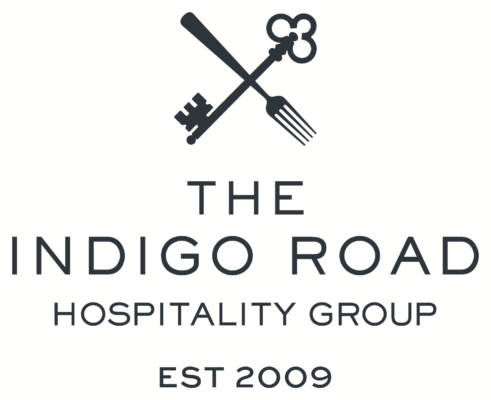At least 700 million guests will make a hotel booking online this year.
That’s huge. At a certain point, before the end of the decade, that number will surpass 1 billion. In general, there are three different methods people use to book hotels:
- Offline – Phone, direct mail, and walk-ins have been popular ways to book accommodations in the past. But over time, the booking process has become much more digitized.
- Indirect – Online travel agencies, global distribution systems, and metasearch engines are now really popular due to their ability to reach the widest audience with the commissions hotels pay them. As a result, the customer acquisition cost went up significantly.
- Direct – More and more hotels are using their websites and social media channels to attract new guests and book them. That allows them to profit more because they can avoid paying commissions to 3rd-party companies.
Today, we’re going to talk about the latter. Prepare to find out what direct hotel bookings are, why you need them, and how to increase them.
What Are Direct Hotel Bookings?
A direct booking is a guest reservation confirmed directly with a hotel, skipping the involvement of travel agencies or intermediaries. Direct bookings are usually made through the hotel’s official website or app.
Some hotels allow guests to book rooms via email, social media, and direct messengers. By cutting out the middleman, the guests are able to engage directly with the hotel and lower their expenses.
On average, only 27% of hotel bookings are made through the property directly. However, this number is a little misleading. That number includes hotels of all sizes, including big hotel chains where guests usually book rooms through agencies.
When it comes to independent hotels, research indicates that more than 56% bookings come from direct channels.
Why Are Direct Bookings Important for Small Hotels?
The merits of direct bookings for hotels are multifaceted:
- Commission Savings: Sidestepping third-party involvement translates to commission-free transactions, substantially reducing distribution expenses. While this requires investments in avenues like website management or advertising, the overall cost savings are noteworthy.
- Better Guest Relations: Direct bookings foster direct communication with guests, unlike the intermediary model. This paves the way for personalized services and brand loyalty cultivation.
- Increased Revenue: Possessing guest contact details empowers proactive engagement, enabling targeted offers to increase return visits and elevate per-guest spending.
What Are the Top Booking Channels in the Hotel Business?
While we have already gone through the general booking methods, we need to go deeper. If you want to improve your direct booking strategy, you must be aware of all the dominant booking channels in the hotel industry.
Here are some of the ways potential customers find your hotel:
OTA (Online Travel Agencies)
Online travel agencies (OTAs) reign supreme in the hotel booking universe. Think Priceline, Expedia, Booking.com, and Orbitz – these colossal platforms open the gateway to a vast audience that might otherwise remain untapped. While you might not wield total control over your hotel’s portrayal on an OTA, you can wield the power of optimization. From alluring imagery to showcasing amenities and crafting irresistible pricing, a strategic approach can amplify your OTA presence. The key? Aligning with OTAs that resonate with your target demographic, striking a balance between impact and efficiency.
Global Distribution Systems (GDS)
Global Distribution Systems (GDS) emerge as pivotal conduits to connect with travel agents and amplify your reach. Brands like Amadeus, Worldspan, Sabre, and Travelport amplify your visibility in the travel agent domain. A global distribution system ensures your details remain current across the globe and serves up real-time pricing and availability information. The trick lies in smart pricing strategies – competitive enough to stand tall yet designed to counterbalance GDS fees.
Social Media
Social media’s influence in driving direct hotel bookings is a force to reckon with, contributing to around 6% of global direct bookings. These platforms foster loyal interactions with brands, nurturing consumer loyalty and engagement. Facebook, for instance, offers the golden “call to action” button, channeling potential guests straight to your booking engine. This seamless connection streamlines the booking process, especially for mobile users, enabling quick rate checks, availability perusal, and swift reservations.
Metasearch Engines
Metasearch engines elevate the booking experience a notch above OTAs. Platforms like Tripadvisor, Trivago, and Google Hotels operate on pay-per-click or commission models, crafting an intuitive user experience. To emerge triumphant in the metasearch realm, synchronization is key. Align your search engine prices with your website, tinker with cost-per-click to strike a harmony between cost and competitiveness, and tailor your approach to the specific metasearch site you’re targeting.
Mobile Apps
Today’s travelers seek convenience, and mobile apps are their digital travel companions. A staggering 123% year-over-year surge in travel app downloads in May 2021 underscores their indispensability. These apps offer swiftness, enriching functionalities, and the allure of push notifications and offline access, unavailable on mobile websites. It’s not just about booking; it’s about staying informed and engaged throughout the journey.
How to Increase Direct Hotel Bookings?
So you want to attract more potential guests. You also want to improve customer loyalty. And, of course, to improve hotel revenue. You can achieve all these things by optimizing hotel direct bookings.
To liven direct hotel bookings up, consider these pivotal strategies:
Make Sure Your Hotel is Listed on Relevant OTAs
The overture of captivating direct bookings demands a harmonious blend of quality and completeness within OTA listings. The content, images, and amenities symphony resonate with potential guests, striking a chord that echoes far beyond the initial interaction.
Start Offering Better Deals for Direct Booking
Like a masterful sonata, the allure of direct bookings is accentuated when OTA rates and perks seamlessly harmonize on your website. This alignment showcases the distinctive value proposition of booking directly, leaving a resonant note that lingers in the minds of prospective guests.
Boost Your Social Media
On the grand stage of social media, engagement acts as the conductor of a captivating rhapsody. Through stories, videos, and interactive content, hotels orchestrate an emotional connection with audiences, resonating with their desires and aspirations. This harmonious symphony lures guests towards direct bookings, rendering them an integral part of the narrative.
Integrate a Booking Engine into Your Website
The essence of a seamless booking engine is akin to a sonata performed with precision and grace. This symphonic encounter eliminates dissonance, offering a fluid and mobile-friendly experience. The crescendo of this interaction seamlessly translates intent into action, resulting in bookings that resonate.
Let Customers Compare Rates
A prelude of transparency sets the stage for the guests’ decision-making symphony. Equipping guests with a rate comparison tool enables them to compose their harmonious booking experience. Transparency not only empowers guests but also strikes a resonant chord of trust and credibility.
Invest in Hotel SEO
In the digital realm, mastering the melody of Hotel SEO involves navigating a dynamic landscape. Staying attuned to evolving trends and orchestrating Core Web Vitals and GA4 strategies generates a crescendo of visibility. Specific tools, like Destination Insights and Hotel Insights, lend depth to this symphony, harmonizing it with location-centric precision.
Mobile-Friendliness, Mobile-Friendliness, Mobile-Friendliness
The responsive mobile design is akin to a sonata composed for the digital age. This symphony, performed with responsive precision, ensures a seamless user experience across devices. In an era where mobile-exclusive browsing is the future refrain, this design is more than a melody; it’s a symphonic movement that resonates across the digital landscape.
Communicate Directly With Guests
The cadenza of personalized guest interaction embellishes the symphony of direct bookings. Here, chatbots emerge as virtuosos, responding instantaneously to guests’ queries and curiosities. As guests experience the seamless blend of technology and hospitality, the symphony culminates in an instant decision, transcending notes to an unforgettable experience.
Let HelloShift Help You Increase Direct Bookings
For independent hotel brands, direct bookings yield immense power. They enhance profitability and keep customer satisfaction at a high level. While hotel direct bookings require some investment, hotel owners can’t deny their impact on the bottom line.
Optimizing your hotel website, adding an online booking engine, and investing in Search Engine Optimization are just a few things you can do to increase direct bookings. It would be best if you had the right tools to improve the guest communication process and increase direct sales.
That’s what HelloShift is here for.
HelloShift’s guest messaging and website chat excel at boosting direct bookings by enhancing the guest experience right from the moment a guest starts the booking process and all the way through their stay, and beyond. Swift and personalized interactions via messaging foster guest satisfaction and loyalty.
Through automated reservation reminders, special offer notifications, and post-stay follow-ups, HelloShift keeps guests engaged throughout their journey.
Hotel guests receive automated, routine messages, consult hotel digital guidebook, and pre-checkin via their mobile device. Hotel teams use HelloShift to work together across buildings, floors, shifts, and departments with up-to-date visibility into room status via the Housekeeping app.
Go digital with Guest Messaging, Contactless Checkin, Website Chat, Staff Collaboration, Housekeeping Management and more.


